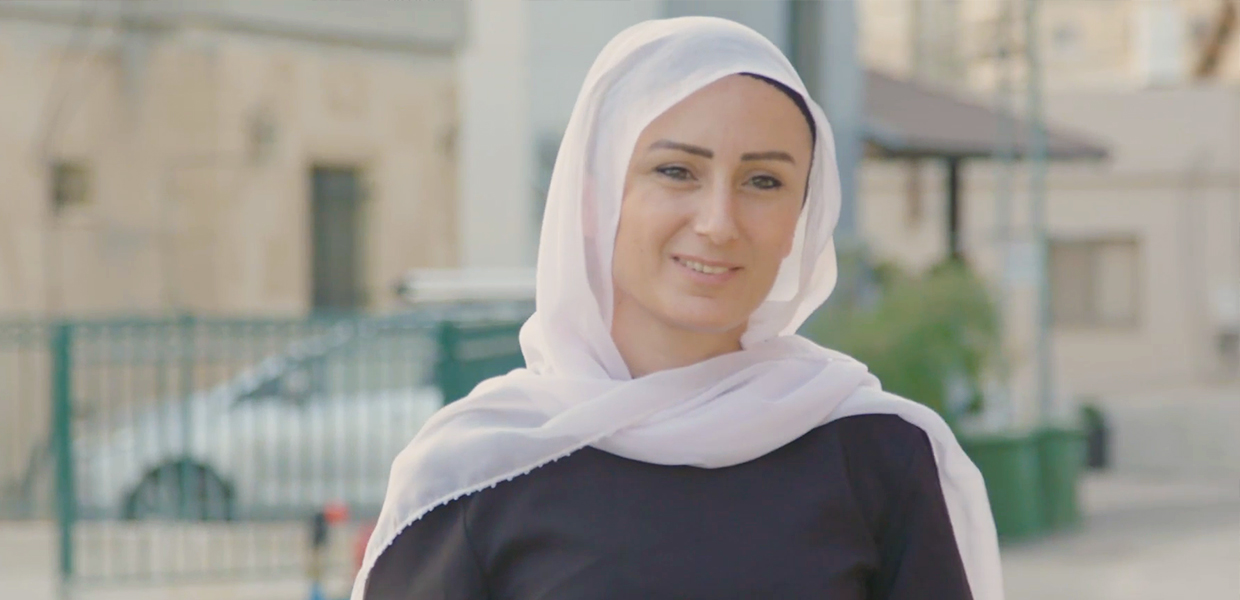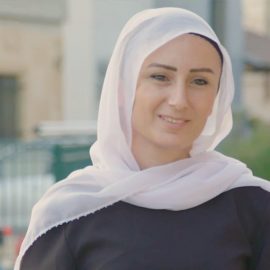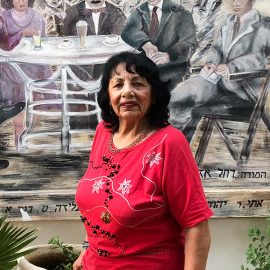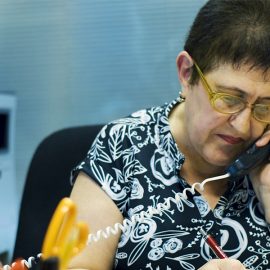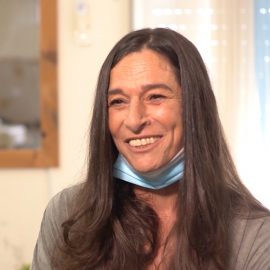Hanan works as a cashier at a supermarket in the northern Druze village of Yarka. At 36 years old, she earns minimum wage and does everything she can to live in dignity with her husband and three children.
For years, Hanan dreamed of starting a business selling her own knitting items and jewelry but with busy family life, fulfilling that dream was impossible. Hanan had a basic high school education and like most women in the conservative Druze Arab community, she did not have professional training or work experience.
“In Druze society, it is less common for women to work outside the village,” says Hanan. “It makes employment opportunities few and far between. And as a mother of three small children, I wanted to be home in the afternoon, so the possibilities were even more limited.
Then I heard about ‘Link,’ an employment program that sounded exactly like what I was looking for.”
Link aims to develop e-commerce skills in traditional societies that are largely excluded from the workforce and are geographically remote or culturally isolated. These include Arabs and the ultra-Orthodox, people with disabilities, those aged 45 and older, and those on welfare.
There are many ways to develop the skills required for working in e-commerce, but Link is culturally adapted for traditional societies, providing unique solutions to reach Israel’s geosocial periphery. The program enables participants to keep their day jobs and overcome the English language barrier.
Hanan took the course at the Rayan Employment Center in Yarka and it provided everything she needed to get started: professional training, English lessons, a supportive business community, and a personal mentor to navigate bumps on the road.
“The program gives me the ultimate solution,” says Hanan. “I can keep my job at the supermarket which gives my family a fixed income, my monthly earnings have increased thanks to online sales, and I can work from home when it is convenient for me. In a relatively short time, I was able to open my own business and fulfill my dream.”

